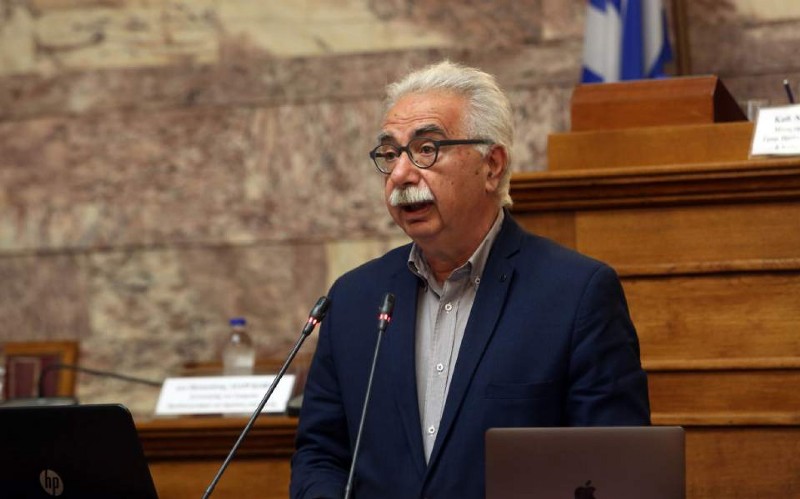The State and the Minister of Education have the intention to turn a simple dialogue into an agreement with the Church rather than an impasse, says Minister of Education Kostas Gavroglou in an interview with newspaper “Avgi”.
As he points out, in view of the meeting of Hierarchy, the State expects the Church’s proposals and considers that “the benefits of the agreement as a whole and especially on the payment regime of the clergy will be emphasized, which is up to date extremely problematic”.
Kostas Gavroglou notes that Church has put forward no argument on the payment regime of the clergy. There is only the hierarchy’s first decision, saying that this issue will not be discussed. At that time, there was no detailed plan from the government. So, now there is a proposal and we expect them to start discussing this issue.”
Regarding the position of the Ecumenical Patriarchate in the dialogue, the minister of Education stresses that the issues concerning the Ecumenical Patriarchate are different from those of the Church of Greece, and specific proposals are expected to be made.
“We respect and listen carefully to a broad range of opinions. During the dialogue held with the delegation of the Ecumenical Patriarchate, we discussed specific issues concerning the Ecumenical Patriarchate, such as the positions of the clergy in the Metropolises of the Throne and the status of the Metropolises of the Dodecanese. That is why we do not have the proposals of the Ecumenical Patriarchate yet,” he notes.
The minister added that the dialogue held with the Church (on the payment regime) is different from the amendment of Article 3, evidenced by the fact that the Church of Greece has established two different committees.
“Our position is clear: After discussions with the Archbishop we drafted a historic agreement between the State and the Church. There are still a few matters that need to be ironed out. These matters are not solved with a policy of non-dialogue, but with dialogue, guided by what is good for our society,” he says.
